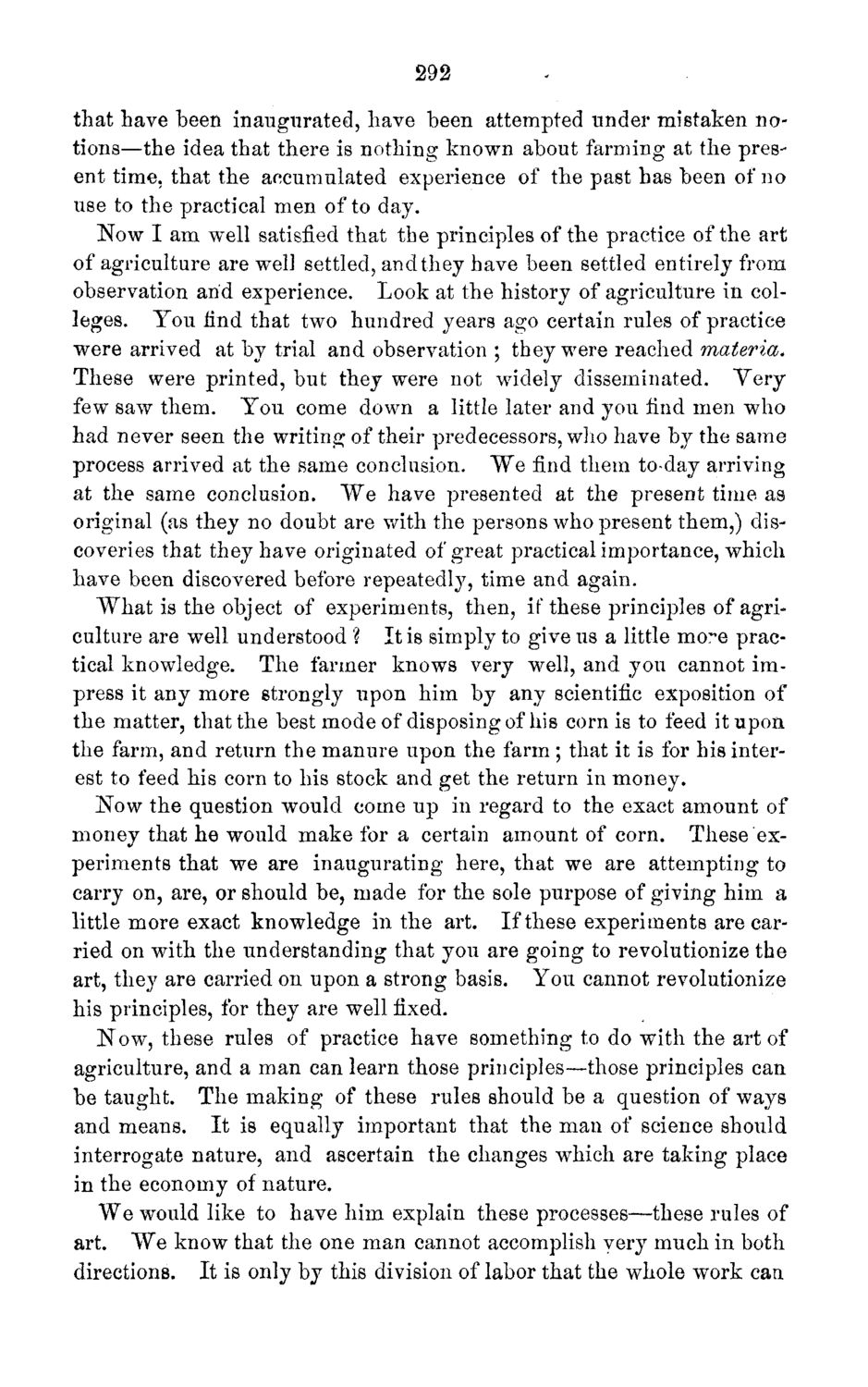| |
| |
Caption: Board of Trustees Minutes - 1871
This is a reduced-resolution page image for fast online browsing.

EXTRACTED TEXT FROM PAGE:
292 that have been inaugurated, have been attempted under mistaken notions—the idea that there is nothing known about farming at the present time, that the accumulated experience of the past has been of no use to the practical men of to day. Now I am well satisfied that the principles of the practice of the art of agriculture are well settled, and they have been settled entirely from observation and experience. Look at the history of agriculture in colleges. Tou find that two hundred years ago certain rules of practice were arrived at by trial and observation ; they were reached materia. These were printed, but they were not widely disseminated. Very few saw them. Tou come down a little later and you find men who had never seen the writing of their predecessors, who have by the same process arrived at the same conclusion. We find them to-day arriving at the same conclusion. We have presented at the present time as original (as they no doubt are with the persons who present them,) discoveries that they have originated of great practical importance, which have been discovered before repeatedly, time and again. What is the object of experiments, then, if these principles of agriculture are well understood ? It is simply to give us a little more practical knowledge. The farmer knows very well, and you cannot impress it any more strongly upon him by any scientific exposition of the matter, that the best mode of disposing of his corn is to feed it upon the farm, and return the manure upon the farm; that it is for his interest to feed his corn to his stock and get the return in money. Now the question would come up in regard to the exact amount of money that he would make for a certain amount of corn. These experiments that we are inaugurating here, that we are attempting to carry on, are, or should be, made for the sole purpose of giving him a little more exact knowledge in the art. If these experiments are carried on with the understanding that you are going to revolutionize the art, they are carried on upon a strong basis. You cannot revolutionize his principles, for they are well fixed. Now, these rules of practice have something to do with the art of agriculture, and a man can learn those principles—those principles can be taught. The making of these rules should be a question of ways and means. It is equally important that the man of science should interrogate nature, and ascertain the changes which are taking place in the economy of nature. We would like to have him explain these processes—these rules of art. We know that the one man cannot accomplish very much in both directions. It is only by this division of labor that the whole work can
| |